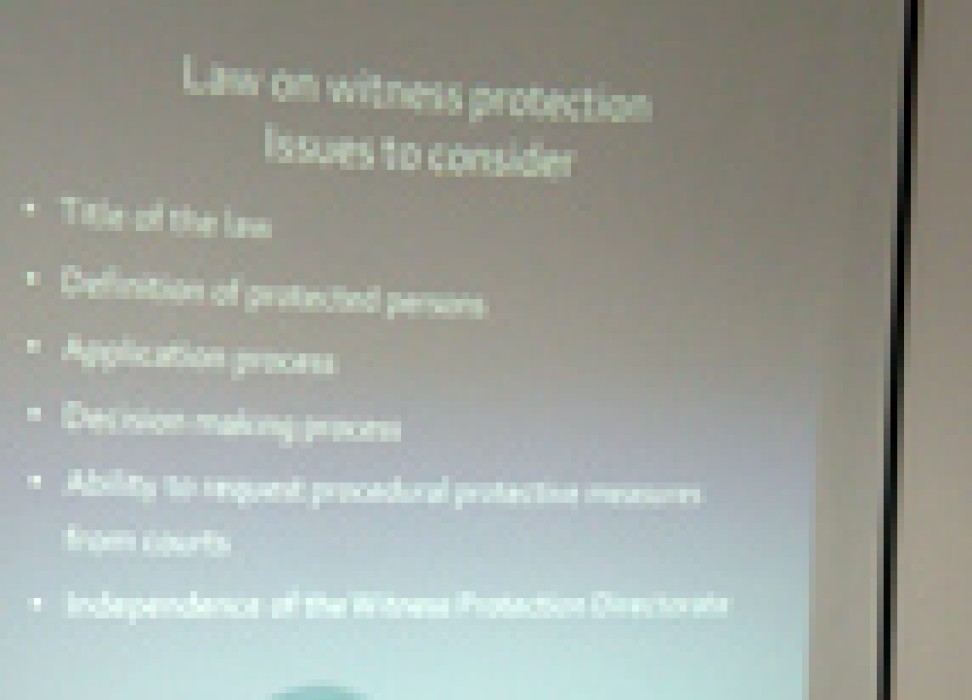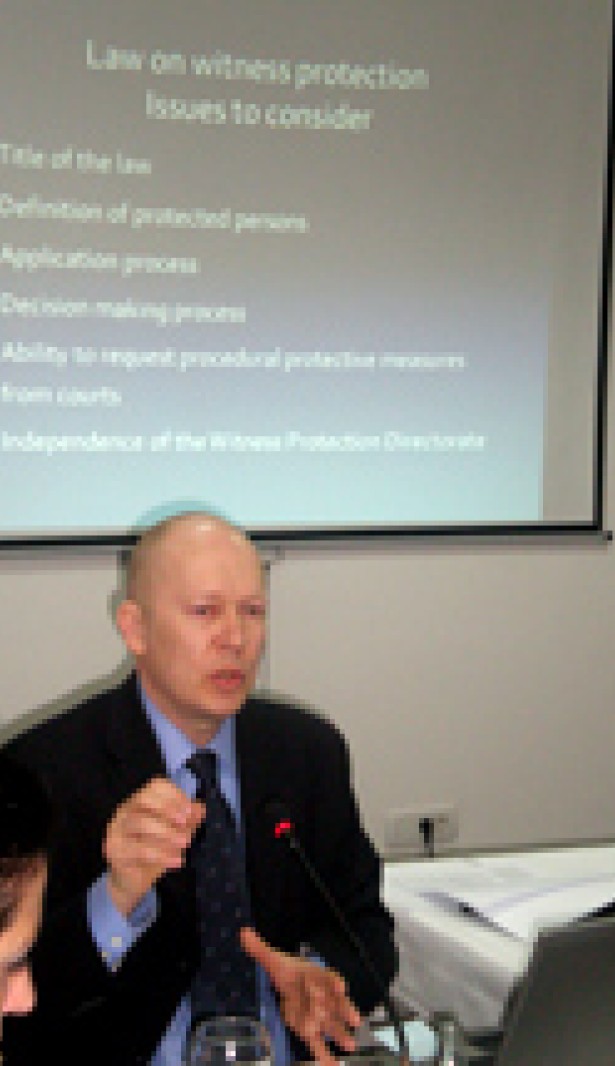Witness protection in Kosovo*
08 May 2012

Combating impunity and strengthening accountability are priorities of the UN Human Rights Office.
UN Human Rights Chief, Navi Pillay has emphasized that her Office regards witness and victim protection as an essential component of efforts to monitor, investigate and prosecute human rights violations and other crimes.
“The whole capacity of a country to render justice to the victims and end impunity regarding past and current abuses could come into question if the justice system is unable to secure convictions because of failures in the production of witness evidence,” says Pillay, who served as a judge on the International Criminal Tribunal for Rwanda, and for several years as its President.
The UN Human Rights Office supports the development of victim and witness protection programmes in a number of countries, in different regions, including in Argentina, Kenya, Nepal Uganda, and Togo.
Most recently, the Human Rights Office invited specialists and experts to a consultation in Pristina, Kosovo, to review existing safeguards for witnesses and victims. As a basis for the discussions, Simo Väätäinen, a former Chief of the Victim and Witness Protection Unit with the International Criminal Court was commissioned by the Office to study Kosovo’s current legislation and implementation of its protective measures.
Kosovo, in south eastern Europe, has a long history of conflict and violence based on ethnic tensions between its largely Albanian population and its Serbian minority.
As a result of fighting there in the late 1990’s, hundreds of thousands of civilians were displaced and thousands more were killed. In its aftermath, a number of participants on both sides were charged with war crimes and crimes against humanity.
In his examination of the current protection framework Väätäinen noted that:”Following the conflict, Kosovo society has faced the monumental task of creating the laws and institutions required for a modern society.”
He referred to the “evolution of new international standards in the area of witness protection” over the past 10 to 15 years, drawing attention in particular, to the High Commissioner’s report on the Right to the Truth. His review included a comprehensive study of programs for the protection of witnesses and other persons involved in trials connected with gross human rights violations and drew on the experience of international courts such as the International Criminal Tribunal for the former Yugoslavia, the International Criminal Tribunal for Rwanda and the International Criminal Court.
Väätäinen said that along with a Law on Witness Protection due to enter into force in September 2012, most of those he interviewed believe the new generation of judges and prosecutors offer the greatest opportunity to date to achieve fundamental change in the criminal justice system in Kosovo.
Significant hurdles remain, however, and Väätäinen made a number of recommendations to overcome them.
Urging an holistic approach which encompasses support and protection for witnesses and victims from the very start of an investigation until the end of the trial and beyond, he identified a number of issues to be addressed, including giving judges more powers to offer protection to witnesses and to order witnesses removed from courtrooms where proximity to the defendants is so stressful it jeopardizes the hearing of evidence.
The organizations with oversight of the victim and witness protection scheme should be structured and financed so that their independence and transparent operation is guaranteed, Väätäinen said.
Kosovo’s renovated courts conform to basic standards, including offering improved safeguards for witnesses, however, in a number of its older buildings it was observed there is potential for improper contact between the participants in proceedings and witnesses. Väätäinen said these deficiencies should be addressed.
Kosovo’s media organizations should ensure that protective orders of the court are not violated and that witnesses and victims are not put at risk as a consequence of their reporting. The Code of Conduct of the Press Council of Kosovo is silent on the responsibility of the media to do their part for the protection of witnesses, with the exception of children under the age of 15 who are victims, witnesses or defendants in a court case. Väätäinen recommended that a provision prohibiting publication of any details describing protected witnesses should be included in the Code of Conduct of the Press Council.
The findings and recommendations were generally well-received, with participants agreeing with the assessment of the current protection framework. The UN Human Rights office in Kosovo will follow-up on the expert consultation by recommending legislative amendments to the relevant authorities and by advocating for a human rights based approach in the training of judicial personnel involved in witness protection programs.
* Reference to Kosovo should be understood in full compliance with United Nations Security Council resolution 1244 and without prejudice to the status of Kosovo.
8 May 2012

VIEW THIS PAGE IN:
